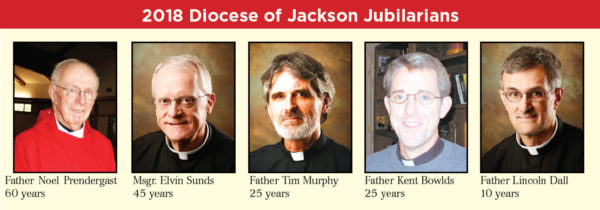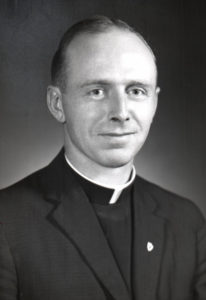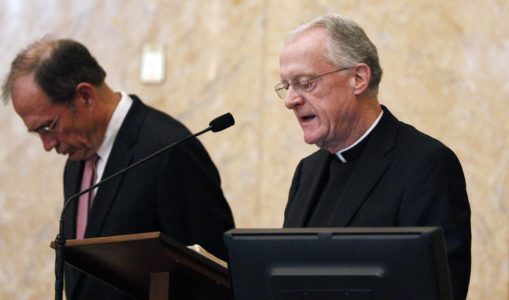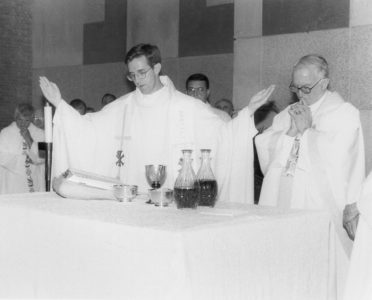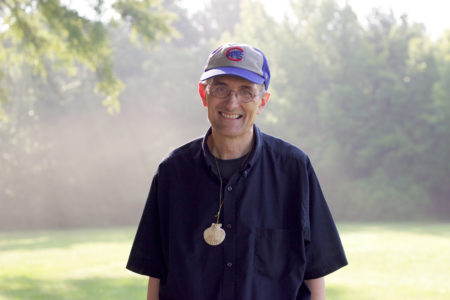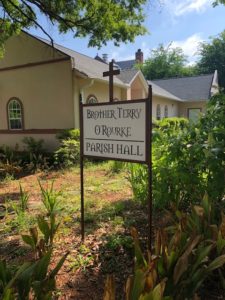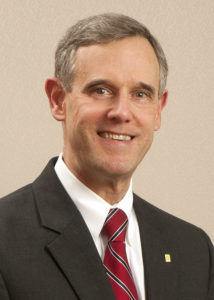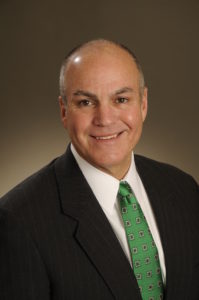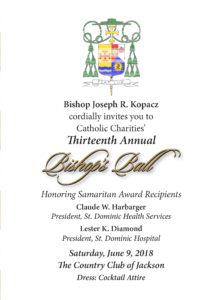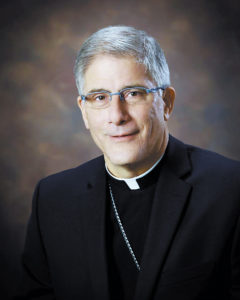NATION
Trump signs order to give faith groups stronger voice in government
WASHINGTON (CNS) – In front of a small crowd of cabinet members and religious leaders at the White House Rose Garden May 3, President Donald Trump announced, and then signed, an executive order giving faith-based groups a stronger voice in the federal government. “It’s a great day,” he said after signing the order and passing out pens to religious leaders who surrounded him outside on the spring morning for the National Day of Prayer event. No details about the order were given at the ceremony, but religious leaders were reminded of the work they do in caring for those in need and were assured by the president that their religious freedom would continue to be protected by the federal government. A White House document posted online after the order was signed said its purpose was to ensure that faith-based and community organizations “have strong advocates” in the White House and the federal government. It said the “White House Faith and Opportunity Initiative” would provide recommendations on programs and policies where faith-based and community organizations could partner with the government to “deliver more effective solutions to poverty.”
States file lawsuits to end DACA
WASHINGTON (CNS) – Continuing the legal drama against a program that protects some 800,000 young adults brought into the country without legal documentation as minors, seven states have filed a lawsuit attempting once more to end it. Joined by Alabama, Arkansas, Louisiana, Nebraska, South Carolina and West Virginia, the state of Texas is leading the charge in a lawsuit filed May 1 that says then-President Barack Obama and his administration unlawfully and unilaterally granted what amounts to “citizenship” to “otherwise unlawfully present aliens” when it approved in 2012 the Deferred Action for Childhood Arrivals program. Popularly known as DACA, the program grants a renewable work permit and other temporary documentation to the young adults if they meet certain conditions. Saying it was unlawful, President Donald Trump announced the program’s end in September and asked Congress to hash out a legislative solution by March, but lawmakers have not done so. Since Trump’s announcement, DACA has been on a legal roller coaster. Most recently, a federal district judge from the District of Columbia ruled on April 24 that the Trump administration did not explain why DACA was “unlawful” when it announced it was going to rescind it. Until it can do so – the administration was given 90 days to justify its action – the Department of Homeland Security, which administers the program, must continue to accept new applications and renew documents for those already enrolled, the judge said.
Iowa legislature sends fetal heartbeat bill to governor
DES MOINES, Iowa (CNS) – A bill described by some observers as the most restrictive abortion legislation in the nation has been sent to the desk of Iowa Gov. Kim Reynolds. The governor has not said whether she will sign the bill, which the Iowa Legislature passed in the middle of the night May 2. Depending on when the legislature adjourns, Reynolds will have three days or 30 days to sign it. The so-called fetal heartbeat bill would prohibit abortions after a baby’s heartbeat can be detected. The legislation began as an amendment to an Iowa Senate bill that would stop trafficking in the fetal body parts that remain following an elective abortion. “As Pope Francis has said, ‘Let us respect and love human life, especially vulnerable life in a mother’s womb.’ We call upon the judiciary to once again recognize that all life should be protected from the moment of conception to natural death,” Tom Chapman, executive director of the Iowa Catholic Conference, said after the bill’s passage. The bill spells out specific steps that must be followed when a woman seeks an abortion. Specifically, it requires a physician to perform an abdominal ultrasound when testing for a detectable fetal heartbeat and to inform the pregnant woman in writing whether a fetal heartbeat was detected, and if so, that an abortion is prohibited.
WORLD
Philippine cardinal urges daily bell tolling to call attention to murders
MANILA, Philippines (CNS) – Cardinal Luis Antonio Tagle called for church bells in the archdiocese to toll at 8 p.m. each day to protest the continuing spate of killings in the country. He said the tolling of the bells will “haunt the perpetrators of violence and killing to remember their victims, never to forget them,” reported ucanews.com. “The bells beckon us to remember the dead … and to ask God to remember them,” said a statement from the cardinal. Ucanews.com reported a Catholic priest and a broadcast journalist were the most recent victims of assassinations. Father Mark Ventura was shot to death after celebrating Mass in Cagayan province April 29. Cardinal Tagle invited the faithful “to pause, remember and pray” for Father Ventura, the second priest to be killed in four months. In December, Father Marcelito Paez was shot dead in the province of Nueva Ecija. “It’s sad that a priest was killed … and even if he’s not a priest, a person. Isn’t he a gift from God? Is it that easy nowadays to just kill and throw someone away?” asked Cardinal Tagle.
VATICAN
Vatican issues instruction on improving canon law studies
VATICAN CITY (CNS) – The changes in canon law Pope Francis made to ensure that marriage annulment cases were handled more quickly, more pastorally and with less expense mean that some changes should be made in the way church law is taught, said the Congregation for Catholic Education. The congregation published an instruction May 3 urging Catholic universities to strengthen their canon law programs and urging bishops to send more of their priests “and, if possible, laypeople” to Catholic universities to earn canon law degrees. The new rules, which go into effect for the 2019-2020 academic year, require all students in what is known as the “first cycle” of studies for church licenses in theology to take at least three semesters of canon law courses, including at least one devoted exclusively to church law regarding marriage and the process of recognizing the nullity of a marriage. The instruction also strongly encourages schools and faculties of canon law to offer courses designed for bishops, who have greater responsibility in determining the nullity of a marriage under the rules introduced by Pope Francis in 2015.
Update: Date set for final approval of canonization of Blesseds Paul VI, Romero
VATICAN CITY (CNS) – The Vatican announced that final approval would be given May 19 for the canonizations of Blesseds Paul VI, Archbishop Oscar Romero and four others. Pope Francis already cleared the way for their canonizations earlier this year with the publication of decrees recognizing a miracle attributed to the intercession of each one of the blesseds. The Vatican said May 3 that an “ordinary public consistory” – a meeting of the pope with cardinals resident in Rome and invited bishops and other dignitaries – would be held May 19 to finalize the approval of six canonizations. This meeting of cardinals and promoters of the sainthood causes formally ends the process of approving a new saint. The dates and locations for the canonization ceremonies are expected to be announced shortly after the consistory. Meanwhile, Cardinal Pietro Parolin, Vatican secretary of state, has said that Blessed Paul’s canonization will take place at the end of the Synod of Bishops on youth and discernment, scheduled for Oct. 3-28.

